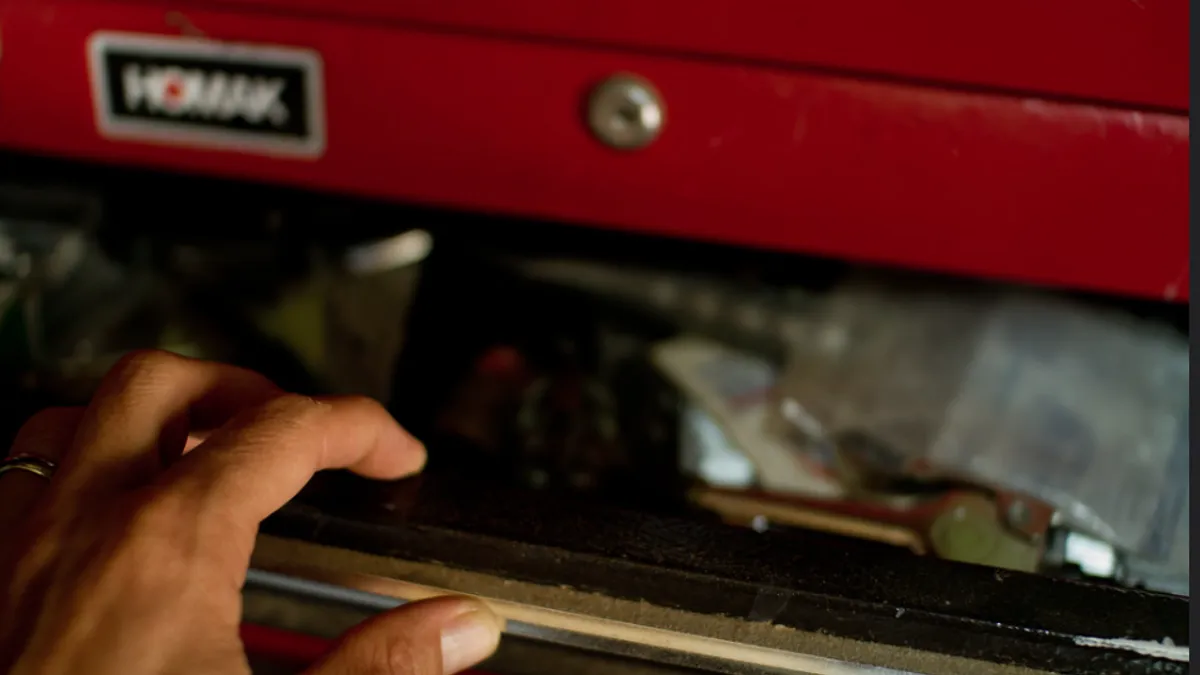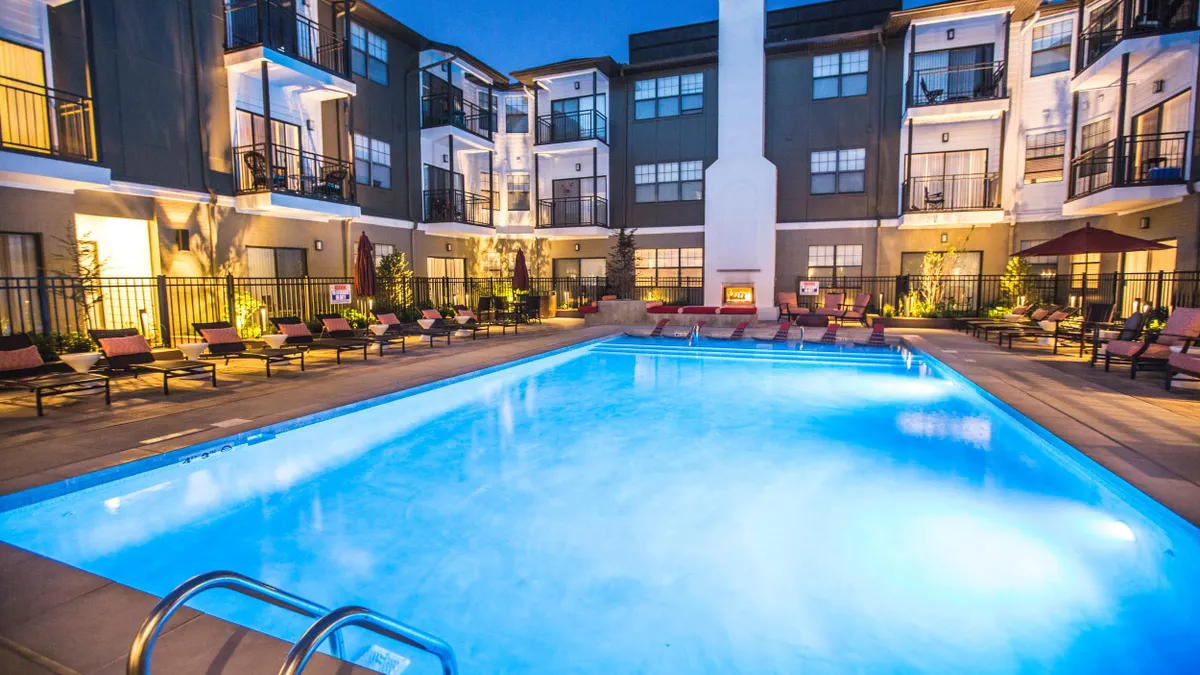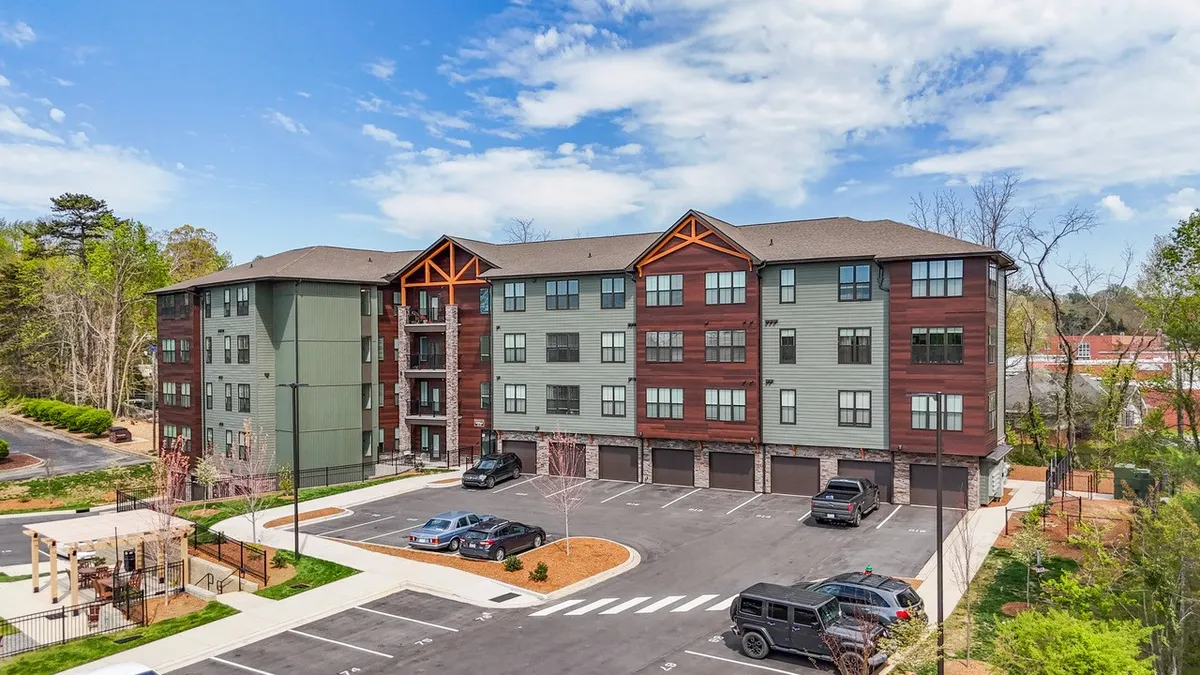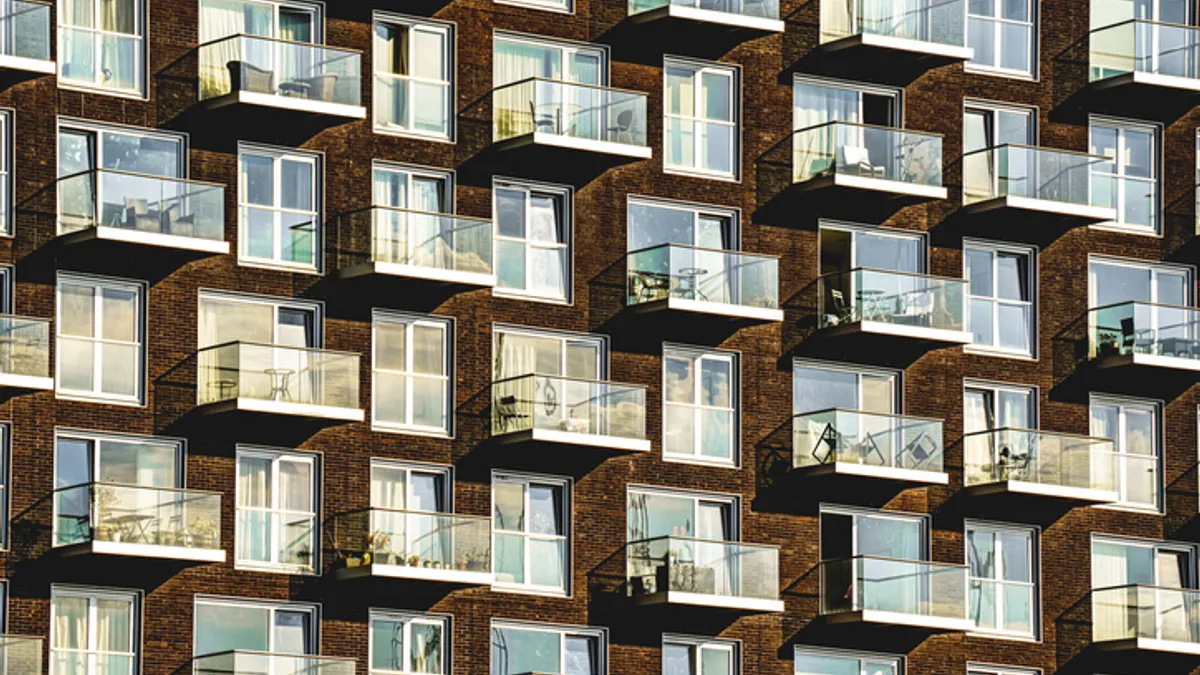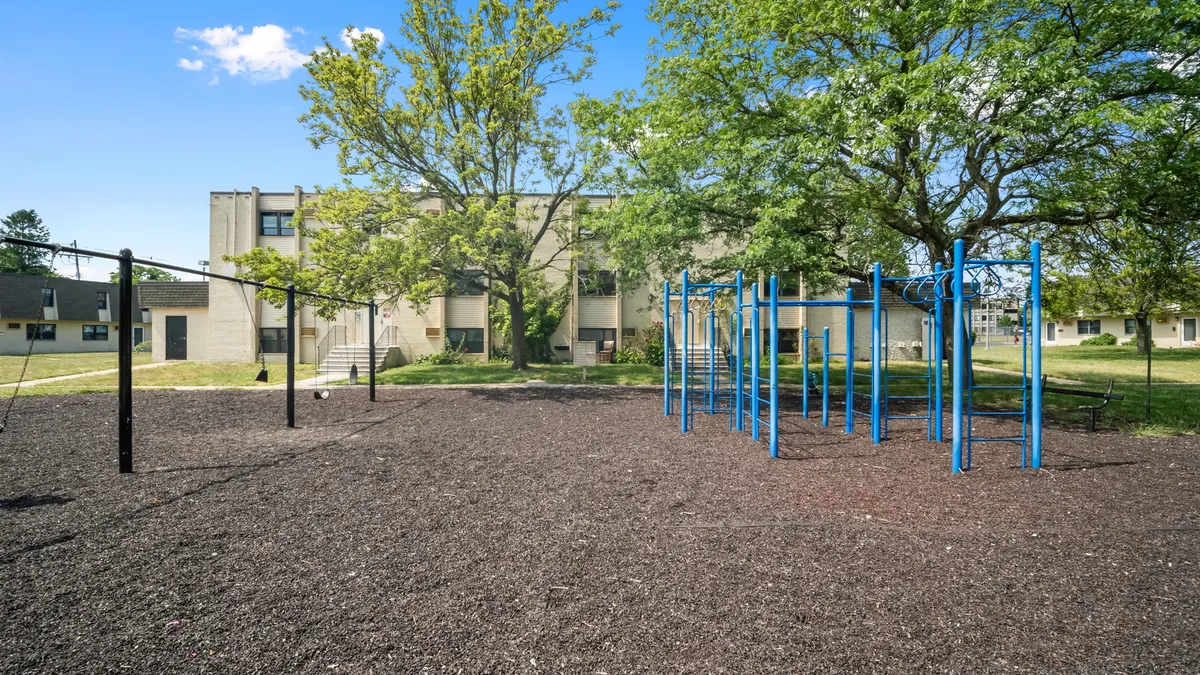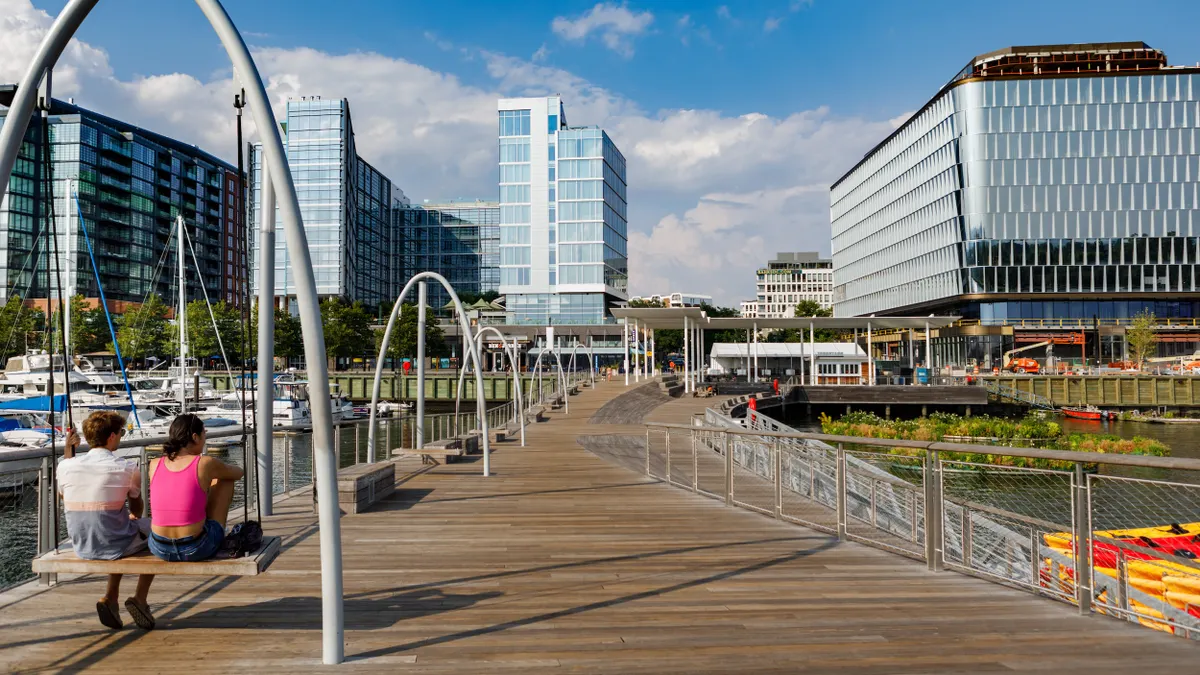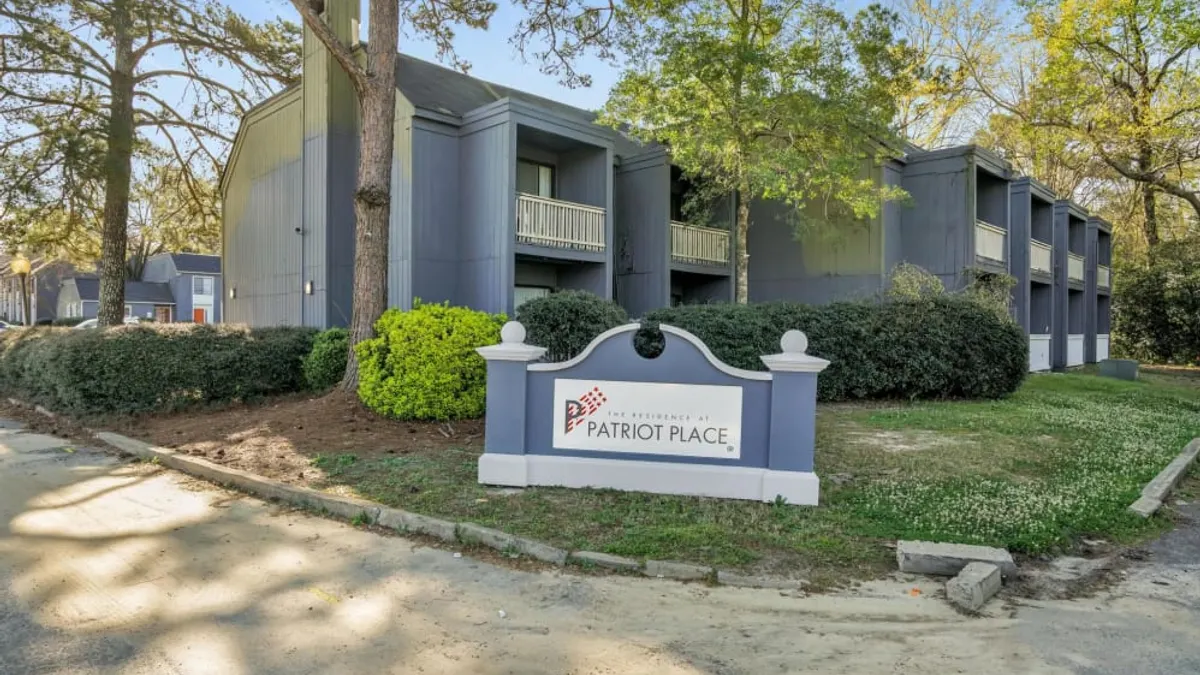Even before COVID-19, it was hard to find maintenance workers to fix the leaks, clear the clogged drains and change out microwaves in apartments.
Now, in the midst of the Great Resignation and with the unemployment rate hovering near 3.6%, many apartment managers say finding qualified maintenance professionals is the biggest problem they face.
"The maintenance technician position is the hardest to fill," said Luanne McNulty, a senior vice president at Orlando, Florida-based ZRS Management, the No. 27 manager on the National Multifamily Housing Council Top 50 list. "All the management companies are having issues with that and paying huge employee referral programs and sign-on bonuses."
Throwing money at the problem is one way to attract and retain top maintenance personnel. But ZRS and other firms like Bell Partners, FPI Management and Monarch Investment and Management Group are going a step further, filling the maintenance gap with training programs and sharing workers across properties.
Compensation boost
The easiest way to attract and retain the best talent is to pay more than your competitors. ZRS has always paid what it's called its "ZRS minimum wage."
"We just keep raising that because we feel like No. 1, it's the right thing to do," McNulty said. "But also I think it's helped us to recruit strong talent. It is $16 an hour, and we just keep pushing it higher each year."
RKW Residential changed its benefits policy to attract talent, including in the maintenance arena, by giving new hires access to benefits on their first day. After three years, team members get free healthcare. The company also combined sick and vacation time to give its employees three weeks of paid time off.
"We also have a diversity day that people can use for any day of the year they want," said RKW President Marcie Williams. "If they want to celebrate a specific holiday or something personal to them they can do that and get paid for that day."
Bell Partners, the No. 18 manager on the NMHC Top 50, is also "realistic" about compensation and has made some upward adjustments, according to Lili Dunn, CEO of the Greensboro, North Carolina-based apartment owner and manager. But she says employees also need to feel a connection to the company and see a career path.
"For our maintenance folks, we created a regional maintenance career track so that they can grow into regional maintenance, which oversees multiple sites and provides corporate support," Dunn said. "Part of that role is recruiting. So those regional maintenance managers supplement recruiting efforts, go to the job fairs and interview folks so that we can also bring in more talent."
Internship programs
Many other sectors of commercial real estate haven’t weathered the pandemic quite as well as the apartment industry. Problems in retail and hospitality created opportunities for apartment owners, who saw record rent increases in 2021. As workers fled these hard-hit sectors, apartment operators welcomed them with open arms.
ZRS Management used temp agencies that offer different internship courses for professionals moving into apartment maintenance from other sectors. The company hired seven maintenance technicians in Dallas from one program.
"I'm finding different companies that offer solutions," McNulty said. "They're providing an internship program and recruiting people and really explaining to them that they can make a career out of this industry."
However, this trend may be reversing with hotels opening back up after the pandemic and more retail stores opening than closing in 2021 after four years of declines, according to Coresight Research. That growth could pull some workers back to hospitality and retail jobs.
Monarch Investment and Management Group, the No. 20 manager in the country, also has training programs for people new to maintenance and apprenticeship opportunities.
"We're letting people know that if you want to learn to be a maintenance guy, we'll work with you, and we'll get you some training on the job," said Monarch CFO Andy Newell.
Shared resources
Even with higher pay and training opportunities, apartment managers say there still aren't enough maintenance workers to go around. This means that multifamily operators have to figure out how to do the same amount of repair work with fewer technicians. "We're just operating lean on the maintenance staff," Newell said.
One way to operate with fewer maintenance staffers is to keep residents in their apartments longer. When a person moves out of an apartment, maintenance comes in and makes routine checks and repairs as part of what apartment managers call the "turn process." If the residents stay longer, maintenance isn't as needed.
"It might become even more prevalent where people want renewals because labor is so tight," Newell said. "The more we lean on maintenance people, the more there is a premium on just renewing the lease."
Other companies are sharing workers across multiple properties. Alpharetta, Georgia-based property manager Pegasus Residential, the No. 37 manager in the country, created a hub-and-spoke system where one maintenance person is dedicated to the property, but everyone else is centralized. "They support many properties, and the director of maintenance will take a look and see where the needs are," said Yakov Belousov, executive director of operations for Pegasus.
FPI Management, the fifth largest manager on the National Multifamily Housing Council's Top 50, has a large presence on the West Coast, allowing it to share maintenance staffers across properties in markets like Sacramento, California; Seattle; and Portland, Oregon.
"Because of our size, we have that strength in numbers," said Vanessa Siebern, senior vice president for FPI. "We're able to borrow staff and share them between multiple properties. And that's helped us through the staffing challenges."
During the pandemic, residents have been more apprehensive about allowing maintenance technicians into their apartments for fear of COVID-19, which also allowed FPI to operate more efficiently.
"We're trying to streamline maintenance as much as possible and make it on an as-needed basis or emergency basis for a lot of things because people don't want maintenance guys in their homes," Siebern said.
Click here to sign up to receive multifamily and apartment news like this article in your inbox every weekday.


